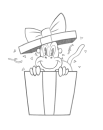$115
DOWNLOADS
next-steps-in-head-construction.mp4
75 MB
next-steps-in-head-construction-transcript-english.txt
2 kB
next-steps-in-head-construction-transcript-spanish.txt
2 kB
next-steps-in-head-construction-captions-english.srt
4 kB
next-steps-in-head-construction-captions-spanish.srt
4 kB
COMMENTS
Congrats on completing the head construction course! This was a tough one, so be kind to yourself and celebrate your progress. Remember, developing these skills takes time and practice. Consider diving deeper into anatomy, exploring different head construction methods, or experimenting with light and shadow to enhance your understanding of tone and structure. Best of luck!
Finally made it to the end (minus the bonus lessons), and I just wanna say that this course is great and really clicked with me in a way that other explanations for portraiture and head invention didn't. I too like to know the why's of structure, and having the exact forms/structures explained was very helpful. Thank you for the course, Mr. Hampton.
Thank you so much for sharing your experience and wisdom in this. It has helped me tremendously.
Thank you very much Michael! I love how you've structured the course and explained the individual steps, the course is very enriching!
Thanks @Michael Hampton! After going around in circles with Portrait drawings for the last couple of year I think your course finally click enough for me not to just learn a rote process, but to actually start developing my own process. I'm sure there are many who feel the same way, so thank you for that!
My only parting questions is about the final step is any drawing process, a finished piece. While you give guidance on where to take this from a next step, I assume most of us are taking course like this to create better final pieces. Is it your opinion that after, say, we put down shading, that now a piece would be in final Rendering and Detailing phase? If that is the case, is it just a matter of final steps are fairly universal and\or medium specific (graphite, oil, digital, etc...) so mentioning them here is beyond the scope?
Before year's I'm going to start trying to actually do monthly completed pieces in Graphite and I'm kind of look at how to bridge the last part of this process with a final product, so all advice is welcome.
•
1yr
Sure. For me, the basis of a rendering or finished piece, is the development of light vs. shadow shapes (graphic pattern). This course attempts to describe all of the potential surface variation that would produce that light vs. shadow read. For this reason, the course ends with the design of light and dark as shape/edges on top of the construction. Though every artist might proceed differently from here, my next step(s) would then be to continue adding halftones and smaller details. At no point though does a rendering ever depart from describing form as any rendering or detailing is the progressive explanation of smaller and smaller surface variations.
This would be the underlying theory for the course and next steps. What would probably be useful for you now is to find a portrait artist you like and study/copy their "finish" with the above in mind or test out one of the portrait courses through Proko.
Hope some of this is helpful.










